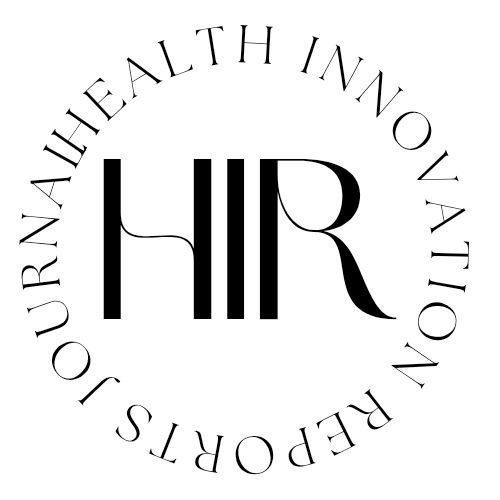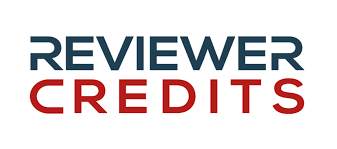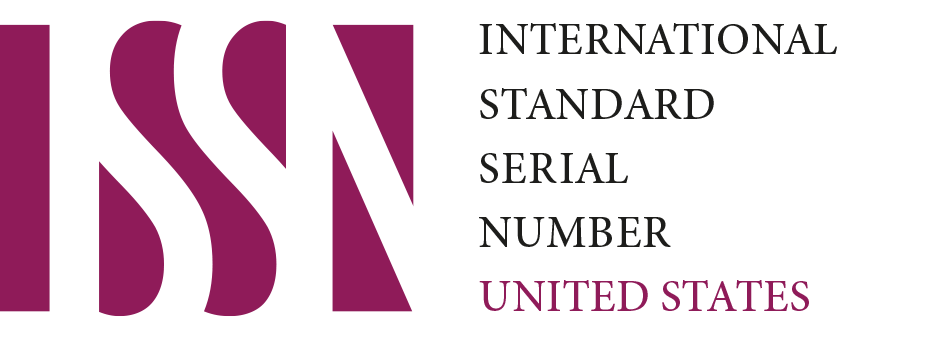Assessment of Mothers’ Knowledge and Attitudes Toward Weaning at Maternity and Raparin Teaching Hospitals: A Cross-Sectional Study in Erbil, 2024–2025.
DOI:
https://doi.org/10.64048/g8vxyp72Keywords:
Weaning, Maternal Knowledge, Infant Nutrition, Breastfeeding Cessation, Parenting Practices, Health EducationAbstract
Background and Aim: In Erbil, Iraq, weaning practices play a critical role in early childhood nutrition and maternal decision-making. This study aimed to assess the levels of knowledge and attitudes regarding weaning among mothers attending Maternity Teaching Hospital and Raparin Teaching Hospital.
Methods: This cross-sectional study was conducted at Maternity Teaching Hospital and Raparin Teaching Hospital from September 15 to November 5, 2024, using purposive sampling. The questionnaire consisted of three sections: the first included demographic data, while the second and third were self-structured tools developed to assess mothers’ knowledge and attitudes toward weaning. Chi-square tests, Pearson correlation, and ordinal regression were used to examine associations between the main variables and potential confounding factors. Data were analyzed using SPSS version 27
Results: A total of 235 mothers participated in the study. The findings showed that most mothers demonstrated fair levels of both knowledge and attitude toward weaning, with mean scores of 33.99 ± 2.89 and 30.48 ± 3.76, respectively. There was a significant positive correlation between knowledge and attitude (r = 0.31, p < .001), indicating that greater knowledge was associated with a more favorable attitude. Ordinal regression analysis identified the number of children as a significant predictor of both knowledge and attitude levels, while other socio-demographic variables showed no significant associations.
Conclusions: The study concluded that mothers in Erbil generally have fair knowledge and attitudes toward weaning. Policymakers and healthcare providers are recommended to implement targeted educational programs to enhance maternal awareness and promote positive weaning practices.
Downloads
References
ABAS, A. H., AHMED, A. T., FARAH, A. E. & WEDAJO, G. T. 2020. Barriers to optimal maternal and child feeding practices in pastoralist areas of Somali region, eastern Ethiopia: a qualitative study. Food and Nutrition Sciences, 11, 540-561. https://doi.org/10.4236/fns.2020.116038
AJMAL, R. 2024. Promoting Breastfeeding and Complementary Feeding Practices for Optimal Maternal and Child Nutrition. Pakistan Journal of Public Health, 14, 168-180. https://doi.org/10.32413/pjph.v14iSpecial.ni.1301
AKHAGBAKER, J. M., KAREEM, M. S., RASOOL, A. A., SABER, A. F., AZIZ, K. F. & KAREEM SR, M. S. 2024. Assessment of knowledge and practice regarding psychological first aid among secondary school students in Erbil City. Cureus, 16. 10.7759/cureus.64671
BROWN, A. & LEE, M. 2013. An exploration of experiences of mothers following a baby‐led weaning style: developmental readiness for complementary foods. Maternal & child nutrition, 9, 233-243. https://doi.org/10.1111/j.1740-8709.2011.00360.x
CAMERON, S. L., HEATH, A.-L. M. & TAYLOR, R. W. 2012. How feasible is baby-led weaning as an approach to infant feeding? A review of the evidence. Nutrients, 4, 1575-1609. https://doi.org/10.3390/nu4111575
DUDLEY, M. Z., LIMAYE, R. J., SALMON, D. A., OMER, S. B., O’LEARY, S. T., ELLINGSON, M. K., SPINA, C. I., BREWER, S. E., BEDNARCZYK, R. A. & MALIK, F. 2021. Racial/ethnic disparities in maternal vaccine knowledge, attitudes, and intentions. Public Health Reports, 136, 699-709. https://doi.org/10.1177/0033354920974660
FAKHRAEI, R. & TERRION, J. L. 2017. Identifying and exploring the informational and emotional support needs of primipara women: a focus on supportive communication. The Journal of Perinatal Education, 26, 195. https://doi.org/10.1891/1058-1243.26.4.195
GHAFEL, H. H. & AL-JUBOURI, M. B. 2024. Using unsafe traditional practices by Iraqi mothers to treat newborns' problems. Heliyon, 10. https://doi.org/10.1016/j.heliyon.2024.e27842
GRAZIOSE, M. M., DOWNS, S. M., O’BRIEN, Q. & FANZO, J. 2018. Systematic review of the design, implementation and effectiveness of mass media and nutrition education interventions for infant and young child feeding. Public health nutrition, 21, 273-287. https://doi.org/10.1017/S1368980017002786
HAMAD, A. H., AHMED, H. M., ALI, A. N., SABER, A. F., HAMAD, A. H. & NAIF, A. 2024. Psychosocial and sexual aspects of female genital circumcision in a sample of Kurdish women in the Kurdistan Region of Iraq. Cureus, 16. 10.7759/cureus.64881
HARSHA, P. & KUMAR, P. 2017. Misconceptions and Harmful Practices in Infant and Young Child Feeding: An Overview. Annals of Health & Health Sciences, 4, 51-56. https://doi.org/10.5958/2322-0422.2017.00011.X
ICKES, S. B., HURST, T. E. & FLAX, V. L. 2015. Maternal literacy, facility birth, and education are positively associated with better infant and young child feeding practices and nutritional status among Ugandan children. The Journal of nutrition, 145, 2578-2586. https://doi.org/10.3945/jn.115.214346
KOLETZKO, B., GODFREY, K. M., POSTON, L., SZAJEWSKA, H., VAN GOUDOEVER, J. B., DE WAARD, M., BRANDS, B., GRIVELL, R. M., DEUSSEN, A. R. & DODD, J. M. 2019. Nutrition during pregnancy, lactation and early childhood and its implications for maternal and long-term child health: the early nutrition project recommendations. Annals of Nutrition and Metabolism, 74, 93-106. https://doi.org/10.1159/000496471
LINDSAY, A. C., LE, Q. & GREANEY, M. L. 2018. Infant feeding beliefs, attitudes, knowledge and practices of Chinese immigrant mothers: an integrative review of the literature. International Journal of Environmental Research and Public Health, 15, 21. https://doi.org/10.3390/ijerph15010021
LIU, C. C., CHEN, Y. C., YEH, Y. P. & HSIEH, Y. S. 2012. Effects of maternal confidence and competence on maternal parenting stress in newborn care. Journal of advanced nursing, 68, 908-918. https://doi.org/10.1111/j.1365-2648.2011.05796.x
MCPHETRES, J., RUTJENS, B. T., WEINSTEIN, N. & BRISSON, J. A. 2019. Modifying attitudes about modified foods: Increased knowledge leads to more positive attitudes. Journal of Environmental Psychology, 64, 21-29. https://doi.org/10.1016/j.jenvp.2019.04.012
MOORE, A. P., MILLIGAN, P., RIVAS, C. & GOFF, L. M. 2012. Sources of weaning advice, comparisons between formal and informal advice, and associations with weaning timing in a survey of UK first-time mothers. Public health nutrition, 15, 1661-1669. https://doi.org/10.1017/S1368980012002868
MUTULI, L., KARIGI, L. & BUKHALA, P. 2016. Socio-Cultural Practises and Beliefs Influencing Infant and Young Child Feeding in Lubao Sub-Location Kakamega County. J Nutr Health Food Eng, 5, 00160. https://doi.org/10.15406/jnhfe.2016.05.00160
RAFIZADEH, R., HEIDARI, Z., KARIMY, M., ZAMANI-ALAVIJEH, F. & ARABAN, M. 2019. Factors affecting breast-feeding practice among a sample of Iranian women: a structural equation modeling approach. Italian Journal of Pediatrics, 45, 1-8. https://doi.org/10.1186/s13052-019-0724-9
SHAOUL, R., TIOSANO, D. & HOCHBERG, Z. E. 2016. Evo-devo of child growth: the role of weaning in the transition from infancy to childhood. Critical reviews in food science and nutrition, 56, 887-895. https://doi.org/10.1080/10408398.2012.732623
SSEMUKASA, E. L. & KEARNEY, J. 2014. Six months of exclusive breastfeeding recommendation: how applicable is the universal exclusive breastfeeding recommendation policy? African Journal of Food, Agriculture, Nutrition and Development, 14, 9071-9084. https://doi.org/10.18697/ajfand.64.12765
TABER, K. S. 2018. The use of Cronbach’s alpha when developing and reporting research instruments in science education. Research in science education, 48, 1273-1296. https://doi.org/10.1007/s11165-016-9602-2
WALSH, A., PIETERSE, P., MISHRA, N., CHIRWA, E., CHIKALIPO, M., MSOWOYA, C., KEATING, C. & MATTHEWS, A. 2023. Improving breastfeeding support through the implementation of the Baby-Friendly Hospital and Community Initiatives: a scoping review. International Breastfeeding Journal, 18, 22. https://doi.org/10.1186/s13006-023-00556-2
YEGANEH, S., MOTAMED, N., NAJAFPOUR BOUSHEHRI, S., POULADI, S. & RAVANIPOUR, M. 2018. Mothers' knowledge and attitude toward food security in complementary feeding of 1-2 year old children and its relation with demographic indices. Evidence Based Care, 7, 22-29.
ZONG, X. N., WU, H., ZHAO, M., MAGNUSSEN, C. G. & XI, B. 2021. Global prevalence of WHO infant feeding practices in 57 LMICs in 2010–2018 and time trends since 2000 for 44 LMICs. EClinicalMedicine, 37. https://doi.org/10.1016/j.eclinm.2021.100971
Downloads
Published
Data Availability Statement
The data that support the findings of this study are available from the corresponding author upon reasonable request.
Issue
Section
License
Copyright (c) 2025 Shamsadeen Abdullah Mohammed, Zainab Muzafar Muhammad, Hanan Shawkat Kamal, Payam Sarbaz Muhammed, Hanan Nazm Arf, Hardi Abdulqadir Hasan (Author)

This work is licensed under a Creative Commons Attribution 4.0 International License.
All articles published in Health Innovation Reports are licensed under the Creative Commons Attribution 4.0 International License (CC BY 4.0). This means anyone is free to share and adapt the work, provided proper attribution is given to the original authors and source.















